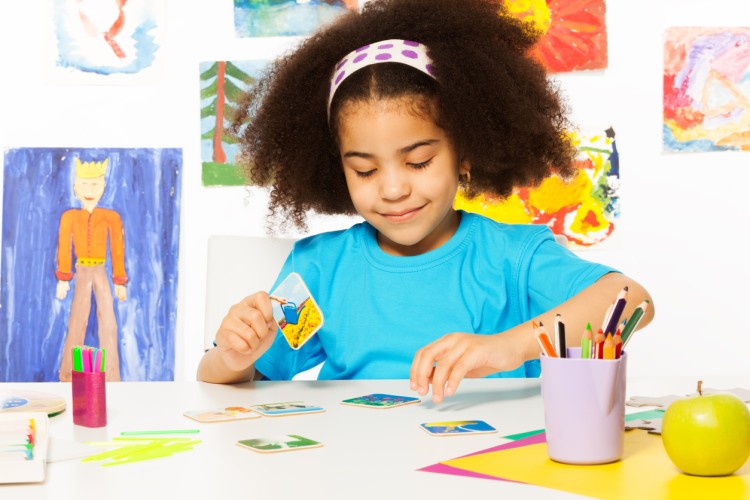Parents should build on strengths of neurodiverse kids…
“Neurodivergents don’t want the so called neurotypicals to fix them up or sympathize with them, instead they expect empathy and inclusivity”: Dr Narendra Rathi, MD, DNB
Senior Paediatrician,
Smile Children Clinic, Neurodiversity Clinic, Andheri west, Mumbai.
Every child learns and interacts with the world differently. Some excel in social settings, while others thrive in quiet focus. These variations are not deficits, but rather reflections of the neurodiversity in children. This article explores the concept of neurodiversity, its various forms, and how Smile Children Clinic in Andheri West, Mumbai, led by Dr. Narendra Rathi, senior child specialist, can support your child’s unique journey in a strength focussed approach.
Understanding Neurodiversity
The term “neurodiversity” refers to the natural variation in human brain function (https://childmind.org/article/what-is-neurodiversity/). There’s no single “correct” way for a brain to work. Instead, a spectrum exists, with each individual possessing strengths and challenges based on their neurological makeup. In my last 3 decades of practice as a paediatrician, I have seen labels changing with time! Children with disability, children with special needs, special children, differently abled children, neurodiverse children… I feel sad to see the ‘Neurotypicals’ not actively trying hard enough for inclusivity of ‘Neurodiverse’.
How common is Neurodiversity?
Various studies indicate that 15-20% of the human population is neurodiverse! (https://www.forbes.com/sites/forbestechcouncil/2021/08/13/neurodiversity-as-a-strengthening-point-for-your-team-and-our-society/?sh=10ac23cd28f9)
Common Forms of Neurodiversity
Several conditions fall under the umbrella of neurodiversity. Here are some of the most recognized:
Attention Deficit Hyperactivity Disorder (ADHD): Children with ADHD may struggle with focus, hyperactivity, and impulsivity. However, they often exhibit remarkable energy, creativity, and problem-solving skills.
Autism Spectrum Disorder (ASD): ASD encompasses a range of challenges in social communication and interaction. Children with ASD may have difficulty with eye contact, interpreting social cues, and repetitive behaviours. Yet, they can possess exceptional focus, detail-oriented minds, and a passion for specific interests.
Learning Disorders (LD): These conditions impact specific areas of learning, such as reading (dyslexia), writing (dysgraphia), or math (dyscalculia). Despite these challenges, children with learning disorders can be highly intelligent and excel in other areas.
Sensory Processing Disorders (SPD): Children with SPD experience sensory information differently. They might be oversensitive to certain sounds, textures, or lights, while others may underreact to stimuli.
Benefits of Embracing Neurodiversity
The neurodiversity movement emphasizes the importance of accepting and valuing these variations (https://hbr.org/2017/05/neurodiversity-as-a-competitive-advantage).
Strength in Diversity: Neurodiverse individuals bring unique perspectives and talents to the table. Their strengths can contribute significantly in various fields like science, art, and technology.
Promoting Self-Acceptance: When children (and parents) understand and appreciate their neurodiversity, they develop a positive self-image and overcome feelings of inadequacy.
Building Inclusive Environments: By recognizing and supporting neurodiversity, we create communities where everyone feels included and empowered to contribute their best.
Smile Children Clinic: Supporting Your Neurodiverse Child
At Smile Children Clinic in Andheri West, Mumbai, Dr. Narendra Rathi and his team understand the importance of individualized care for neurodiverse children. We offer comprehensive evaluations, diagnosis, and treatment plans tailored to your child’s specific needs. We have long experience of more than 3 decades in the field of Developmental & behavioural Child Health. We are also celebrating Neurodiversity Week from 18-24 March 2024. Here’s how we can help:
Diagnosis & Early Intervention: The earlier a diagnosis is established, the sooner a support system can be implemented, maximizing your child’s potential.
Collaboration: We work closely with parents, educators, and therapists to create a cohesive support network for your child’s development.
Treatment Options: Depending on your child’s needs, we may recommend therapy (occupational, speech, behavioural), medication management, or a combination of approaches.
Empowering Parents and Child
Understanding and embracing neurodiversity empower your child to thrive. If you have concerns about your child’s development or behaviour, schedule an appointment with Dr. Narendra Rathi at Smile Children Clinic in Andheri West, Mumbai. Testimonials and reviews from our patients speak of our expertise and trustworthiness. Together, we can create a plan to nurture your child’s unique strengths and help them blossom into their full potential.

